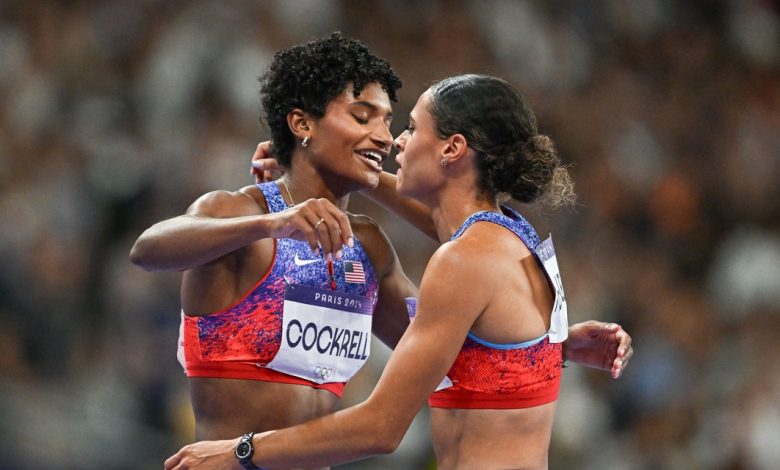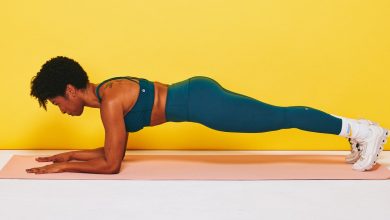The Olympic Games Look A Lot More Joyful This Year—And We’re All for It

It’s been a while since the Olympics have been, well, this fun.
Whatever is in the air (we won’t talk about what’s in the water—specifically in the Seine), we’d like to bottle it up. Snoop Dogg in full equestrian garb, dancing with a horse? Yes, please. Ilona Maher looking for love in the Olympic Village (ahem, “the Villa”)? We’d tune into an ongoing series. And now we even know the muffin man: He’s a Norwegian swimmer named Henrik Christiansen who can’t get enough chocolate treats in the cafeteria.
Wearing glasses is now iconic, thanks to Stephen Nedoroscik, a.k.a. the pommel horse guy or gymnastics Clark Kent, who became an unlikely hero not just for solving a rubik’s cube in less than a minute, but also swooping in to help Team USA take the bronze medal in the men’s team competition. Our utmost gratitude will always go to Bob the Cap Catcher, who bravely dove to the bottom of the pool to retrieve a rogue swim cap, wearing the most colorful speedo on deck.
The Paris Games have not just showcased the best athletic talent on the planet, they’ve also put us on notice: Joy is back.
It’s no secret that we’ve been through dark days (okay, dark years!) of late. Of course we’ll continue to grapple with the countless injustices and cruelties of the world, but it’s become clear that we can also forge on with levity amid all this serious business. The 2024 Olympics have shown us how.
Case in point: At the end of her competition at the 2024 Olympics, Simone Biles, now the most decorated gymnast in history, called her experience this year “pure joy.” Juxtapose it with her early exit from competition at the Tokyo Games to tend to her mental health, which came as USA Gymnastics was reeling from reckoning of allegations of abuse and long-standing mistreatment of its athletes. One thing I couldn’t help but notice: The apparent tension and fear that I’d seen previously on the faces of the girls and women competing for Team USA were nowhere to be found in Paris, replaced by what appeared to be an authentic enjoyment of their sport and appreciation of the Games. That could be seen when Biles, Suni Lee, Jade Carey, Jordan Chiles, and Hezly Rivera were celebrating big wins, sure—and they got those in Paris, definitely—but also when they were simply cheering on their teammates, warming up, or chilling after a match.
Members of the USA gymnastics team Jordan Chiles, Hezly Rivera, Simone Biles, Sunisa Lee and Jade Carey, left to right, celebrate winning the team gold at the Paris 2024 Olympic Games in Paris, France, on Tuesday, July 30, 2024. Forget the Hamptons, Nantucket or Capri Wall Street is spending part of the summer at the Paris Olympics. Photographer: Nathan Laine/Bloomberg via Getty ImagesBloomberg/Getty Images
“You see them smiling more, you see them joking around more,” Carly Anderson, PhD, a psychologist at Premiere Sport Psychology who works with Olympians, says. “They just seem much more lighthearted.”
To be fair, the Tokyo Games, held in the thick of the pandemic, brought their own tension. As a way to keep athletes and staff safe, spectators and guests were prohibited. Without fans, family, friends, and most of the merriment (without those heartwarming post-competition mom moments), Tokyo really lacked warm fuzzies. Back in the US, the wave of civil unrest amid racial injustice was so heavy. The athletes understandably carried all of it with them—through training for an extra year and to the field of play, where they weren’t sure if anybody was even watching.
Then take Anna Cockrell, a 400-meter hurdler and longtime mental health advocate who has been open about her experience with depression. In Tokyo, she faced big disappointment on the track, when she was disqualified for stepping out of her lane. She came back in Paris, earning a silver medal in that very event. At a post-race press conference, Cockrell reflected that the difference between her performance in 2024 and in Tokyo was due to her commitment to working on herself off the track—and remaining consistent with therapy was a big part of equipping her to handle those highs and lows.
“The progress comes, in my opinion, in continuing [in therapy] when you’re not in crisis anymore. The biggest difference from 2021 to now is a real overall commitment to the work, in every aspect of my life,” Cockrell says. “How do I become a better person? How do I become a person that is better equipped to handle the emotional highs and lows of training and competing?”
PARIS, FRANCE – AUGUST 08: (L-R) Women’s Long Jump Gold medalist Tara Davis-Woodhall, Women’s 400m Hurdles Silver medalist Anna Cockrell and Women’s Long Jump Bronze medalist Jasmine Moore of Team United States celebrate on day thirteen of the Olympic Games Paris 2024 at Stade de France on August 08, 2024 in Paris, France. (Photo by Andy Cheung/Getty Images)Andy Cheung/Getty Images
We can’t be Pollyanna about what we’re witnessing, though. What athletes like Biles and Cockrell have done to cope with their struggles is extremely uncomfortable, difficult work. To be able to live with traumas and yet move on toward happier days often requires a lot of therapy, as Cockrell noted, and a strong support system. Feeling immense joy doesn’t mean we are ignoring hard realities and personal disappointments or the real pressure of top-level performance, but that we are acknowledging that we can navigate through all of that and still feel a sense of happiness.
“Life is full of adversity, and that’s normal,” Dr. Anderson says. “It’s hard to have feelings of pride, satisfaction, reward, and content if you haven’t gone through tough moments or had to work hard for that. If you’re just given something, it doesn’t feel the same way as when you’ve worked really hard for it.”
PARIS, FRANCE – AUGUST 03: Silver medalist Sha’Carri Richardson and bronze medalist Melissa Jefferson of Team United States react after the Women’s 100m Final on day eight of the Olympic Games Paris 2024 at Stade de France on August 03, 2024 in Paris, France. (Photo by Cameron Spencer/Getty Images)Cameron Spencer/Getty Images
Maybe that’s why we’re relishing the good vibes from the Paris Games so much. We’ve worked really hard to get to this place of joy again. COVID is still here, racism and misogyny are still alive and well, nations are at war, and politics are still…politicking. But we can also find Nikki Hiltz racing the 1500 meters as a transgender nonbinary athlete who shares how much their community has uplifted them, even in the face of so much LGBTQ+ hate. A far cry from 2021, when Hiltz failed to make the Games and later reflected to Runner’s World that they had absorbed too much of the responsibility to educate the running community about what it meant to be nonbinary and had felt exhausted by it after coming out.
“Remember in Inside Out 2 when Joy says, ‘maybe this is what happens when you grow up… you feel less joy?’” Hiltz posted on Instagram, after winning the Olympic Trials to make the 2024 Olympic team. “Yeah I actually have no idea what she’s talking about.”



